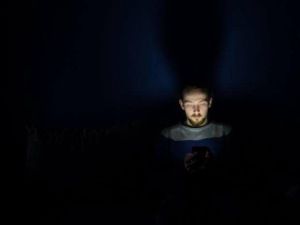News
Young Danes struggle to sleep without a screen
This article is more than 5 years old.
About 25 percent of young people aged 18-24 prefer the bright lights of their phone or tablet to lull them into dreamland

Stifling your melatonin production (photo: Pixabay)
A new Epinion survey commissioned by DR Nyheder has revealed that a quarter of Danes aged 18-24 had difficulty falling asleep without their phone or tablet switched on beside them.
The survey also showed that 19 percent fall asleep every day with a screen of some sort turned on in bed.
Experts warn that the trend could have several health-related consequences, as exposure to blue light curbs the body’s production of the hormone melatonin – which regulates the sleep-wake cycle.
READ ALSO: Five out of six Danes are addicted to smartphones
Parents need to step up
Eventually, a sustained lack of good sleep can lead to fatigue, diabetes and cardiovascular illnesses and other health-related complications.
Birgitte Vedersø, the head of school interest group Danske Gymnasier, contended that parents, the public sector and schools were primarily responsible for enlightening young people about the problem.
“It’s more difficult to perform in school when you sleep badly. But screen addiction also hampers contemplation and retention,” Vedersø told DR Nyheder.
A survey from a few years ago suggested that almost 85 percent of Danes were addicted to their smartphones.










































